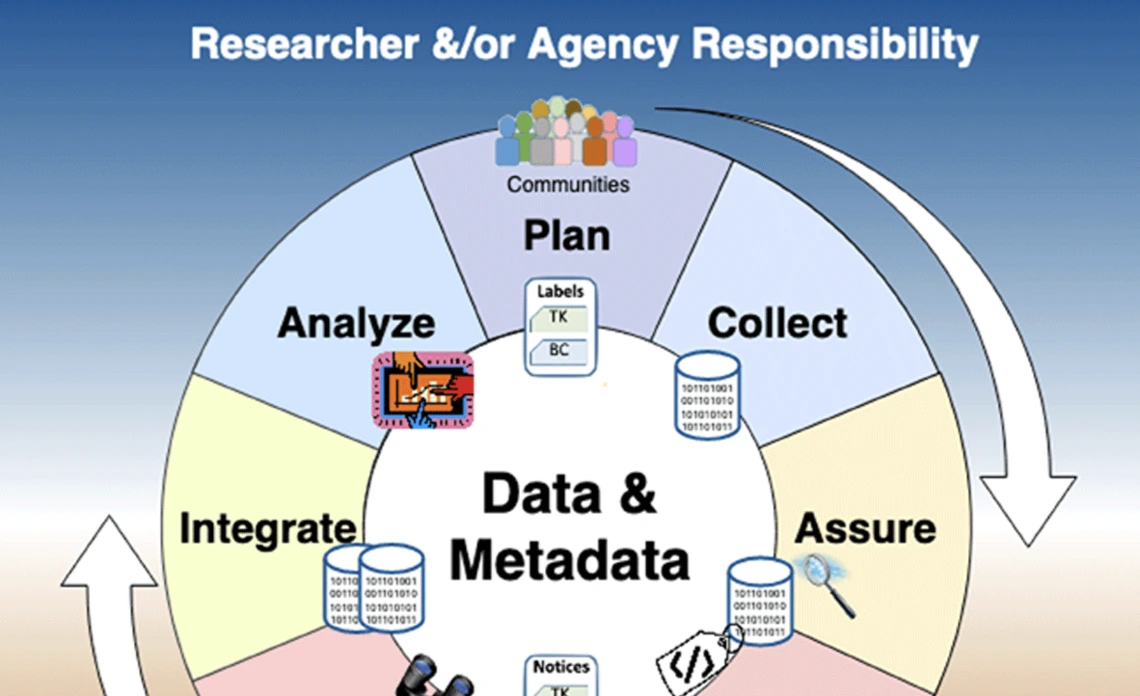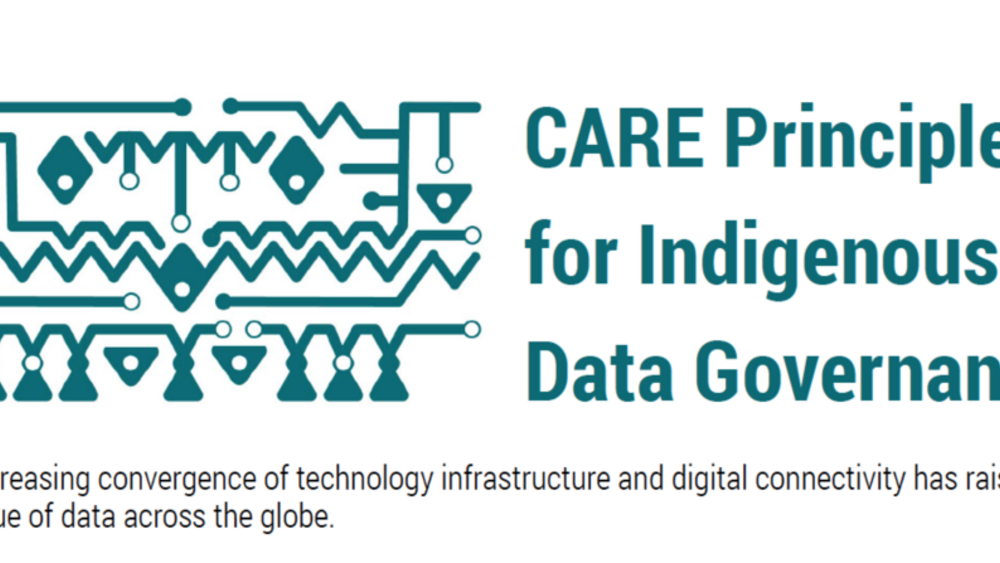Datasets carry cultural and political context at all parts of the data life cycle. Historically, Earth science data repositories have taken their guidance and policies as a combination of mandates from their funding agencies and the needs of their user communities, typically universities, agencies, and researchers. Consequently, repository practices have rarely taken into consideration the needs of other communities such as the Indigenous Peoples on whose lands data are often acquired.
In recent years, a number of global efforts have worked to improve the conduct of research as well as data policy and practices by the repositories that hold and disseminate it. One of these established the CARE Principles for Indigenous Data Governance (Carroll et al. 2020), representing ‘Collective Benefit’, ‘Authority to Control’, ‘Responsibility’, and ‘Ethics”’ hosted by the Global Indigenous Data Alliance (GIDA 2023a).
In order to align to the CARE Principles, repositories may need to update their policies, architecture, service offerings, and their collaboration models. The question is how? Operationalizing principles into active repositories is generally a fraught process. This paper captures perspectives and recommendations from many of the repositories that are members of the Earth Science Information Partners (ESIPFed, n.d.) in conjunction with members of the Collaboratory for Indigenous Data Governance (Collaboratory for Indigenous Data Governance n.d.) and GIDA, defines and prioritizes the set of activities Earth and Environmental repositories can take to better adhere to CARE Principles in the hopes that this will help implementation in repositories globally.
Additional Information
O’Brien, M, Duerr, R, Taitingfong, R, Martinez, A, Vera, L, Jennings, L L, Downs, R R, Antognoli, E, Brink, T T, Halmai, N B, Carroll, S R, David-Chavez, D, Hudson, M, and Buttigieg, P L 2024 Earth Science Data Repositories: Implementing the CARE Principles. Data Science Journal, 23: 37, pp. 1–29. DOI: https://doi.org/10.5334/dsj-2024-037




